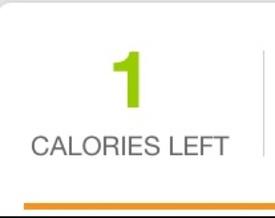Eat my exercise calories? Really??
Replies
-
I'm still trying to wrap my brain around this--it's so different from what I always thought. I'm worried about gaining more weight at the beginning, even just a few pounds. I would be so encouraged if I could lose just one pound after so many months of losing nothing.Thank you for all the information. Should I be limiting carbs? This is all new to me!
Some people find that they have to limit carbs to lose weight, especially women with PCOS, but a lot of people lose weight just fine simply limiting calories and trying to get in a basic balance of all the nutrients, not so much worrying about staying under on anything, just making sure they're not neglecting any particular area. It's very individual. Different people find that different styles work for them.0
This discussion has been closed.
Categories
- All Categories
- 1.4M Health, Wellness and Goals
- 398.1K Introduce Yourself
- 44.7K Getting Started
- 261K Health and Weight Loss
- 176.4K Food and Nutrition
- 47.7K Recipes
- 233K Fitness and Exercise
- 462 Sleep, Mindfulness and Overall Wellness
- 6.5K Goal: Maintaining Weight
- 8.7K Goal: Gaining Weight and Body Building
- 153.5K Motivation and Support
- 8.4K Challenges
- 1.4K Debate Club
- 96.5K Chit-Chat
- 2.6K Fun and Games
- 4.8K MyFitnessPal Information
- 12 News and Announcements
- 21 MyFitnessPal Academy
- 1.5K Feature Suggestions and Ideas
- 3.2K MyFitnessPal Tech Support Questions
